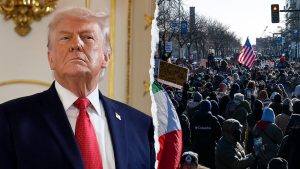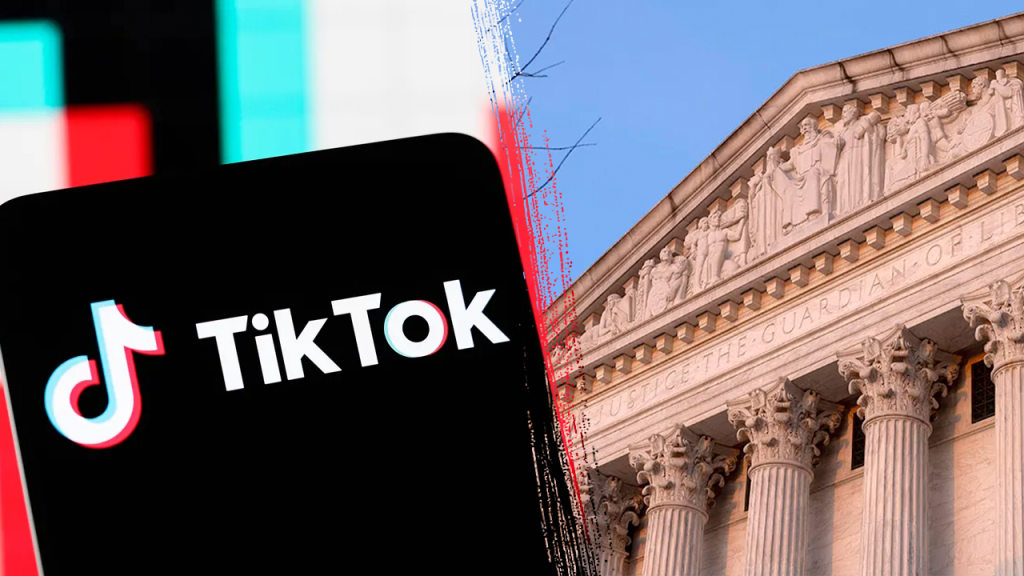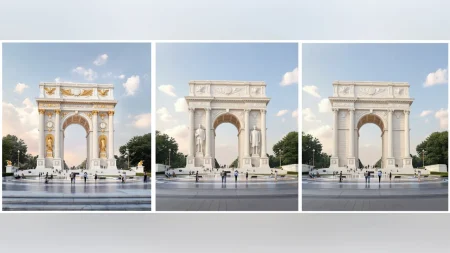The Supreme Court is currently deliberating on a pivotal case regarding the future of TikTok in the United States. The case, brought before the court on an expedited basis, centers on a law passed by Congress mandating that TikTok either divest from its Chinese parent company, ByteDance, or face a nationwide ban. This legal battle pits national security concerns against the First Amendment rights of millions of American TikTok users. The court’s decision has significant implications for the social media landscape, the relationship between the U.S. and China, and the balance between national security and free speech.
The crux of the case revolves around the Protecting Americans from Foreign Adversary Controlled Applications Act, passed in April with bipartisan support. This legislation grants TikTok a deadline to separate from ByteDance or be removed from U.S. app stores. TikTok, ByteDance, and several app users have challenged this law, arguing that it represents an unconstitutional infringement on free speech. They contend that the ban is an overly broad measure that fails to consider less restrictive alternatives. Their argument hinges on the First Amendment, which protects freedom of expression, asserting that the law singles out a major platform for speech and suppresses the voices of millions of Americans.
Conversely, Congress and the Biden administration justify the law based on national security concerns. They argue that China, considered a foreign adversary, could leverage TikTok to access sensitive user data, manipulate content, and advance its geopolitical interests within the U.S. The administration contends that these potential threats justify the ban, and that the law doesn’t restrict speech based on viewpoint or content, but rather addresses the inherent risk posed by Chinese ownership. The government has even submitted classified evidence to the court to bolster its argument, though this evidence remains inaccessible to the public.
The timing of the case adds another layer of complexity, coinciding with President-elect Trump’s expressed support for TikTok. Trump’s seemingly favorable stance towards the app contrasts with the actions taken by his administration and has introduced an element of political uncertainty. TikTok’s legal team has cited Trump’s support as a reason for delaying the court’s decision, hoping that the incoming administration might adopt a different approach. This presidential interest complicates the already intricate legal arguments, adding a layer of political maneuvering to the legal proceedings.
Adding another dimension to this already complex case are the varying perspectives from within Congress. Some lawmakers have voiced opposition to the ban, arguing that it represents an overreach and an infringement on First Amendment rights. They suggest that less drastic measures could address data security concerns without stifling free speech. They draw parallels to historical instances of censorship justified by national security concerns, urging the court to prioritize First Amendment protections. Others, however, maintain a firm stance against TikTok, emphasizing national security risks and the importance of enforcing the divestiture requirement.
The Supreme Court now faces the difficult task of weighing these competing interests. The justices must determine whether the government’s national security concerns outweigh the potential violation of free speech rights. Their decision will have far-reaching consequences, shaping the future of online platforms, the balance between national security and individual liberties, and the relationship between the U.S. and China in the digital age. The court’s ruling will set a precedent for how the government can regulate foreign-owned technology companies operating within the U.S., impacting not just TikTok but potentially other platforms in the future. The court’s decision will be a defining moment in the ongoing debate over online censorship, data security, and the role of foreign influence in the digital sphere.














